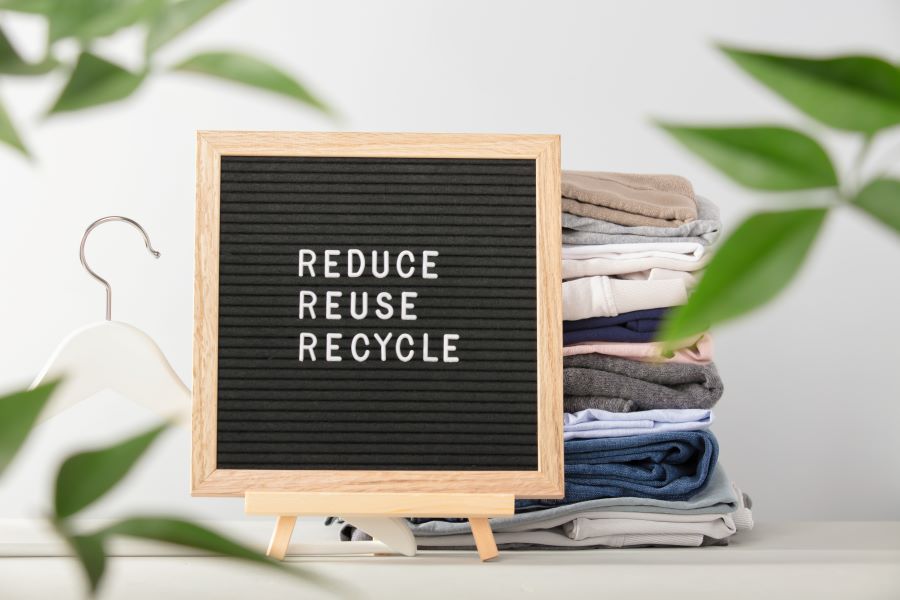We are constantly bombarded with advertisements, social media influencers and peer pressure telling us we need to buy the latest gadget, trendiest clo
We are constantly bombarded with advertisements, social media influencers and peer pressure telling us we need to buy the latest gadget, trendiest clothes or most popular beauty product to find happiness and fulfilment. This constant pressure to consume can be mentally and emotionally exhausting.
Finding a balance between meeting our basic needs as consumers and making sustainable, informed choices aligned with our values has never been more pertinent. The principles of mindful consumption provide guidance on how to develop a healthier relationship with ‘stuff’ by focusing more on experiential purchases over material goods.
Understanding Mindful Consumption: A Holistic Approach
Mindful consumption is the practice of purchasing, using and disposing of goods and services in an intentional way that aligns with personal values and minimises environmental harm. Rather than mindless or impulsive spending to fill a temporary void, it encourages slowing down to determine what we authentically need versus short-lived wants created by marketing or social pressures. The goal is to shift spending away from resource-intensive mass consumerism towards sustainable products and brands for essential purchases only.
This reduces clutter that ultimately leads to financial stress and environmental waste. When applied holistically across key areas like diet, technology, fashion and homewares, mindful consumption allows space to emerge for what really provides meaning.
The Psychological Benefits of Decluttering Your Space
Humans psychologically connect with the spaces we inhabit on a deep level. When a space contains an overload of random clutter with no clear purpose or meaning, it can negatively impact mood and motivation through sensory overload and lack of order.
Cluttered, messy spaces correlate strongly with increased stress, anxiety and depression. Excess things accumulate chaotically without conscious organisation, draining mental energy daily through continual low-level frustration and choices around what to do with these unused items.
On the other hand, mindfully decluttering and streamlining a space can lift a psychological weight. Bringing a level of mindful organisation into your personal space allows room for deeper relaxation and clarity of thought.

Navigating the Digital World: Reducing Tech Clutter for Mental Clarity
The influx of new technology over the past decades has delivered both profound benefits and unique challenges. While innovations help us stay efficiently connected and informed, many people suffer from digital overwhelm.
Notification pings from multiple devices, alongside constantly refreshing apps and social media feeds, compete for our attention. This creates unstructured mental clutter that makes it difficult to focus or think deeply.
Mindfulness in Consumption: Making Informed Choices in Everyday Purchases
Becoming a mindful consumer requires rethinking even small, everyday purchases by considering necessity, ethics, sustainability impact and alternative options before swiping your card.
When eyeing a tempting impulse buy, pause and reflect – do I authentically need this or just temporarily want it? If your current possessions already fulfil their function, save your money. Prioritise replacing only essentials purposefully chosen to last, not trends soon wasted.
Research brands aligning ethics with eco-friendly practices before purchasing new pieces. Seek quality construction guaranteeing longevity from materials able to be recycled later, not single-use plastics adding to landfills. Favour reusable choices over disposable convenience – for instance, vaping can be a good alternative to smoking for both your health and your consumption habits.
Daily micro-purchases present opportunities to align spending with values by supporting social enterprises or local makers instead of mass chains. Every dollar mindfully directed catalyses positive change through ethical supply chains.
Sustainable Eating: How to Declutter Your Diet for Health and Environment
The modern food system is overflowing with unhealthy, unsustainable options that harm our bodies and planet. Navigating the clutter for a healthy, ethical diet can feel overwhelming. Shifting towards plant-based whole foods dramatically simplifies choices while optimising nutrition. Eliminating meat and dairy erases confusion around labels related to animal welfare or safety standards. Choosing organic produce removes pesticide exposure worries.
Beyond health, opting for local seasonal vegetables, grains, and legumes significantly lowers your carbon footprint compared with meat-centric diets. Home cooking instead of takeout reduces single-use plastic waste. Even just staying hydrated primarily with tap water prevents an estimated 200 billion plastic bottles per year from entering landfills.
The Art of Letting Go: Techniques to Detach from Material Possessions
As conscious consumers aiming to declutter our lives, one of the biggest challenges lies in parting ways with possessions we feel attached to – even when their functional purpose has expired. Sentimental value often outweighs actual usefulness when facing a closet purge or considering donating an outdated electronic device. But acknowledging the burden owning excessive stuff places on our psyche helps shift perspective.
When struggling to let go of an item, ask yourself – would retaining this improve my life somehow, or is it simply taking up physical and mental space? Does joy spark from seeing it daily, or is that joy now forgotten underneath a pile of other forgotten things?
Visualise the relief opening up space both physically and mentally from removing what no longer fits your lifestyle. Letting go gets easier with practice as the benefits of simplicity emerge. Soon, you may even find yourself eagerly minimising belongings down to just your most loved essentials.
Streamlining Your Wardrobe: A Step-by-Step Guide to Conscious Fashion
Clothing accumulates easily, with many pieces languishing unworn even years after their purchase. Streamlining your wardrobe not only grants peace mentally through increased order but simplifies getting dressed daily so you can reclaim precious time.
Start by removing everything from your cupboard shelves and drawers. As you touch each garment, decide whether it sparks joy or purpose in your current lifestyle. Be brutally honest about items purchased for an aspirational self that never emerged, gifts from years ago that now seem irrelevant or pieces you always bypass because they don’t fit quite right.
Group apparel into categories – Sparks Joy, Potentially Sparks Joy or No Spark. Next, try on the potential pieces and re-sort accordingly. The leftover No Spark pile should be donated or sustainably recycled.
Arrange your joy sparking wardrobe by colour spectrum to easily see what you own. Let go of anything that looks out of place in your cohesive collection. You’ll emerge with a simplified wardrobe containing only beloved essentials that empower getting ready each morning.
Simplifying Your Living Space: Tips for a Minimalist Home
Much like decluttering your wardrobe, streamlining clutter throughout your home creates both physical and mental spaciousness conducive to relaxation. Start by removing everything from shelves, surfaces and drawers room by room. Rehome or recycle any items not used in the past year. For what remains, consider if each piece sparks daily joy or purpose. If not, let it go. Multifunctional furniture suited to your lifestyle is essential for a minimalist home to avoid clutter returning.
Clever storage like pull-out drawers, wall-mounted racks, or hidden compartments keep necessities neatly tucked out of sight. Avoid flat surfaces without a specific function, as these enable clutter accumulation.
Arranging furniture sparingly creates fluid space to move freely throughout each room. Uncluttered floor space has a therapeutic, renewing effect on mindset upon entering. Plants breathe life into pared-back interiors through organic shapes and tones.
Wrapping Up
Embracing mindful consumption provides a framework for navigating modern life more intentionally across all areas, from diet to fashion. By decluttering physical possessions, digital spaces, commitments and habits back to only essentials, sparking joy, clarity, and meaning fills the spaces where needless excess once drained energy.
The simplicity mindset offers holistic benefits beyond gaining storage space or tidying shelves. Consciously reducing ownership of random things clears mental bandwidth for focusing where it matters. Streamlining wardrobes saves precious time each morning, while clearing social clutter enables nurturing the deepest connections.



















































































































COMMENTS